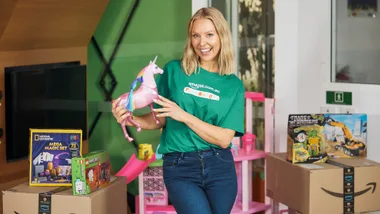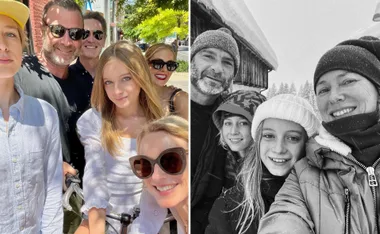It’s an easy trap to fall into: your baby is born and while you’re fully equipped to care for their needs, Dad’s parenting ‘job’ is sidelined until they start kicking footballs or need chauffeuring to parties. After all, that’s how our parents and grandparents did it so it must be okay, right?
Wrong, says the research from professionals who’ve found the more dads get involved in the first years of a baby’s life, the better it will be for him, Mum and, most importantly, their child.
In particular, hands-on dads have been found to be important in developing social skills, independence, a strong moral sense and intellectual skills.
“When a man holds a baby they get a sense of security that’s quite different from a mother’s. While Dad’s role may be only a supporting one for things like breastfeeding, it’s absolutely critical in a baby’s development,” says parenting expert Pam Linke.
While Dad may find distracting adult stuff like commuting and paying gets in the way of spending time with their new son or daughter, it doesn’t mean he can’t make a huge impression in their first years.
“What dads actually do with their kids matters more than how often they do it,” says Dr Kyle Pruett, a clinical professor of psychology at the Yale University Child Study Center.
Whether he’s there a lot, or not as much as he’d like too, every dad deserves his time in the lead role. Here’s how you can help him achieve that.
Let him change nappies…
In 2014 this may sound like a no-brainer but ask your father (actually, best ask your mother) how often he changed your nappy and the chances it was rarely, if ever. “Dads becoming more hands-on with day-to-day things is one of the really big changes that’s happened in parenting and it’s incredibly positive,” says Pam. Even if he’s available only occasionally to dress, feed and care for baby, your child will benefit from his involvement even at an early age. Studies show that sons who are nurtured by their fathers will in turn be more likely to be more hands-on with their own children. And similarly, fathers who interact with their daughters have been shown to reduce the rate of girls’ emotional problems when they reach their teenage years. Why? Because, even when they’re young, dads help daughters feel competent, an essential precursor for self-esteem.
Your job as mum: Be patient and help teach him how to get more hands-on, such as identifying different cries and all those little child rearing tricks that you’re picking up along the way. He’s guaranteed not to read the books, so you’ll be his prime guide.
Let Dad rumble with the kids…
A father’s piggy backs, flying babies, wrestles and a generally less fearful type of parenting is just as important as a mother’s careful nurturing. That’s because your kids will learn that you can be fun and strong while being gentle. Neuroscientists have found that, up to the age of five, physical play actually develops the parts of children’s brains that create better coordination and sporting ability. On top of that, one 26-year study found that a greater amount of physical play with the father corresponds to better, deeper friendships with children and their peers because they learn self-control, how to manage and express their emotions and recognise others’ cues.
Your job as mum: Don’t pull Dad up too quickly on rougher forms of play because it’s a really important part of their bonding. And remember, his whole body a jungle gym just made for them to climb over and discover. He doesn’t wear earrings or make-up so bubs can tug away at his ears and facial bits with minimal consequences.
Let Dad broaden the kids’ horizons
How? Because dads tend to let kids roam a bit farther and aren’t generally as fussed about them looking immaculate and eating the right things (partly because they don’t suffer the judgment of other mothers), they tend to open kids up to new experiences. The result? Your little ones will have increased confidence and a willingness to explore, both of which are great building blocks for brainpower.
The more prominent dads are in their children’s lives, the more the children learn to successfully negotiate two separate but equally important relationships – Mum and Dad. “Distinct relationships from an early age equips children to deal with the broader, more diverse range of people they’ll meet in the future,” says Pruett.
Your job as mum: Make yourself scarce for some of the time. If you’re always in the background, Dad’s development of a competent one-on-one relationship will be hampered. Yes, they probably come back a mess and eat rubbish, but that can all be fixed at the next bath or meal.
Dads love their kids’ mum
The greatest irony of having a baby is that the relationship that made it happen can be the biggest casualty. “Parenting is not easy and in many ways it’s the most stressful time for a couple,” says Pam. One of the most important ways for a dad to raise great children is to love their mother (and similarly, the other way round). Kids pick up on tensions between Mum and Dad, and, although it may not be apparent, “the effect is greatest on under cildren under three because they don’t have the ability to make sense of it,” adds Pam.
Your job as mum: Hire a babysitter, go out and connect as a couple in the way you used to before you had kids. Or, if need be, shout at each other and get it off your chest away from them. Either way, it’ll be worth every cent.



.png?resize=380%2C285)







